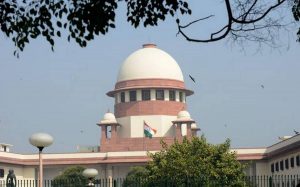Supreme Court Collegium:

The Supreme Court Collegium has approved 10 additional judges of the Karnataka High Court and two from the Kerala High Court for appointment as permanent judges of these courts.
- The Collegium is pushing hard to fill vacancies. There is likely to be a steady flow of recommendation of names for filling vacancies in the 25 High Courts, which have over 465 vacancies. This is over 41% of the total sanctioned judicial strength of 1,098 in the High Courts.
- In exercise of the powers conferred by clause (2) of Article 124 of the Constitution of India, the appointments are made by the President of India.
- The names are recommended by the Collegium.
Eligibility to become a Supreme Court judge:
- The norms relating to the eligibility has been envisaged in the Article 124 of the Indian Constitution.
- To become a judge of the Supreme court, an individual should be an Indian citizen.
- In terms of age, a person should not exceed 65 years of age.
- The person should serve as a judge of one high court or more (continuously), for at least five years or the person should be an advocate in the High court for at least 10 years or a distinguished jurist.
The collegium sends its final recommendation to the President of India for approval. The President can either accept it or reject it.
- In the case it is rejected, the recommendation comes back to the collegium. If the collegium reiterates its recommendation to the President, then he/she is bound by that recommendation.




